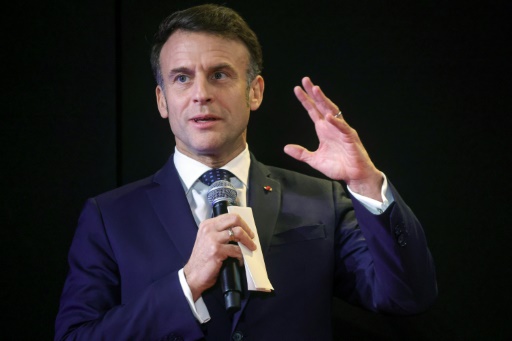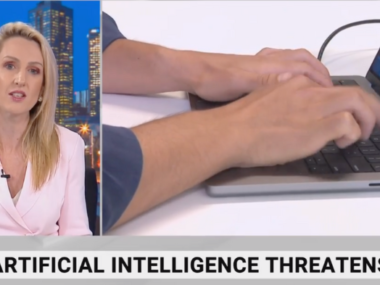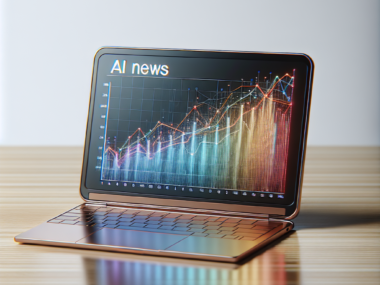Having dedicated his career to making France more business-friendly, French President Emmanuel Macron finds Europe’s position in artificial intelligence concerning—an oversight that could come at a high cost.
“We are not in the race today,” Macron told CNN’s Richard Quest in an exclusive interview at the Elysee Palace on Thursday. “We are lagging behind.”
He emphasized the need for a clear AI strategy to close the gap with the United States and China. Macron also expressed concerns that Europe might end up as a mere consumer of AI, forfeiting control over its future development.
This concern is a driving force behind this week’s AI summit in Paris, part of Macron’s ongoing efforts to position France at the center of global AI discussions and policymaking.
He frequently highlights Paris-based Mistral, considered Europe’s response to OpenAI. The company launched a new app on Thursday, promoting its ability to match U.S. competitors while using less computing power. However, the unexpected emergence of China’s cost-effective DeepSeek has intensified competition for the French firm.
Europe needs to significantly improve its financing efforts.
With its strong reliance on nuclear energy, France stands out as a net energy exporter, making it well-positioned to support energy-intensive data centers.
By fall 2025, the country plans to introduce what officials claim will be Europe’s largest supercomputer, located just outside Paris.
Situated at Mont Valerien, a military facility, the supercomputer will enable large-scale AI applications to tackle design and engineering challenges, such as developing France’s next-generation aircraft carriers. The French Ministry of Defense also plans to use AI for advancing military technologies, including anti-drone jamming systems.
However, this remains an exception. With Europe controlling only 3-5% of global computing power, Macron sees France’s energy surplus as an opportunity to drive AI advancements. His goal is for Europe to host 20% of the world’s data centers.
Macron stressed that financing—particularly from the United States and Gulf Arab states—will be crucial, emphasizing that Europe “must do much better” in this area.

A woman participates in the AI Action Summit in Paris on Thursday, where global experts discussed AI-related threats before a upcoming world leaders’ summit on the technology.
Securing funding within Europe could become an unexpected advantage if former U.S. President Donald Trump follows through on his tariff threats against European allies.
“In America’s view, the EU treats us very unfairly, very badly,” Trump stated at the World Economic Forum in January. He later threatened tariffs on the bloc after imposing—and then reversing—steep import taxes on Canada and Mexico.
While Trump’s 10% tariffs on China remained in place, he announced plans for new “reciprocal tariffs” next week, which could impact global trade.
Trump has frequently criticized the U.S. trade deficit with the EU, which grew by $26.9 billion to reach $235.6 billion in 2024, according to U.S. government data.
Macron rejected this perspective, arguing that Europe’s significant spending on digital services—often excluded from trade balance calculations—paints a different picture.
In response to potential tariffs, Macron emphasized the need for Europe to safeguard its producers from U.S. and Chinese competition while also easing investment regulations to prevent European savings from flowing into the U.S. EU Commission President Ursula von der Leyen echoed this stance last week.
Maintaining competitiveness
Competitiveness is essential, Macron told CNN.
“I will fight for AI,” he declared, advocating for a business climate that strengthens Europe’s position. “I will fight for stronger defense and security solutions as Europeans. And I will push for the highest level of ambition in all these areas.”
In February and March, Macron plans to introduce reforms and regulations for AI startups to better compete with the U.S. and China.
“We need to eliminate unnecessary regulations and simplify the current framework,” he said. “Europe must streamline its rules, become more business-friendly, and align more closely with the United States.”
He hopes this week’s summit will serve as a “wake-up call” for Europe in AI.











